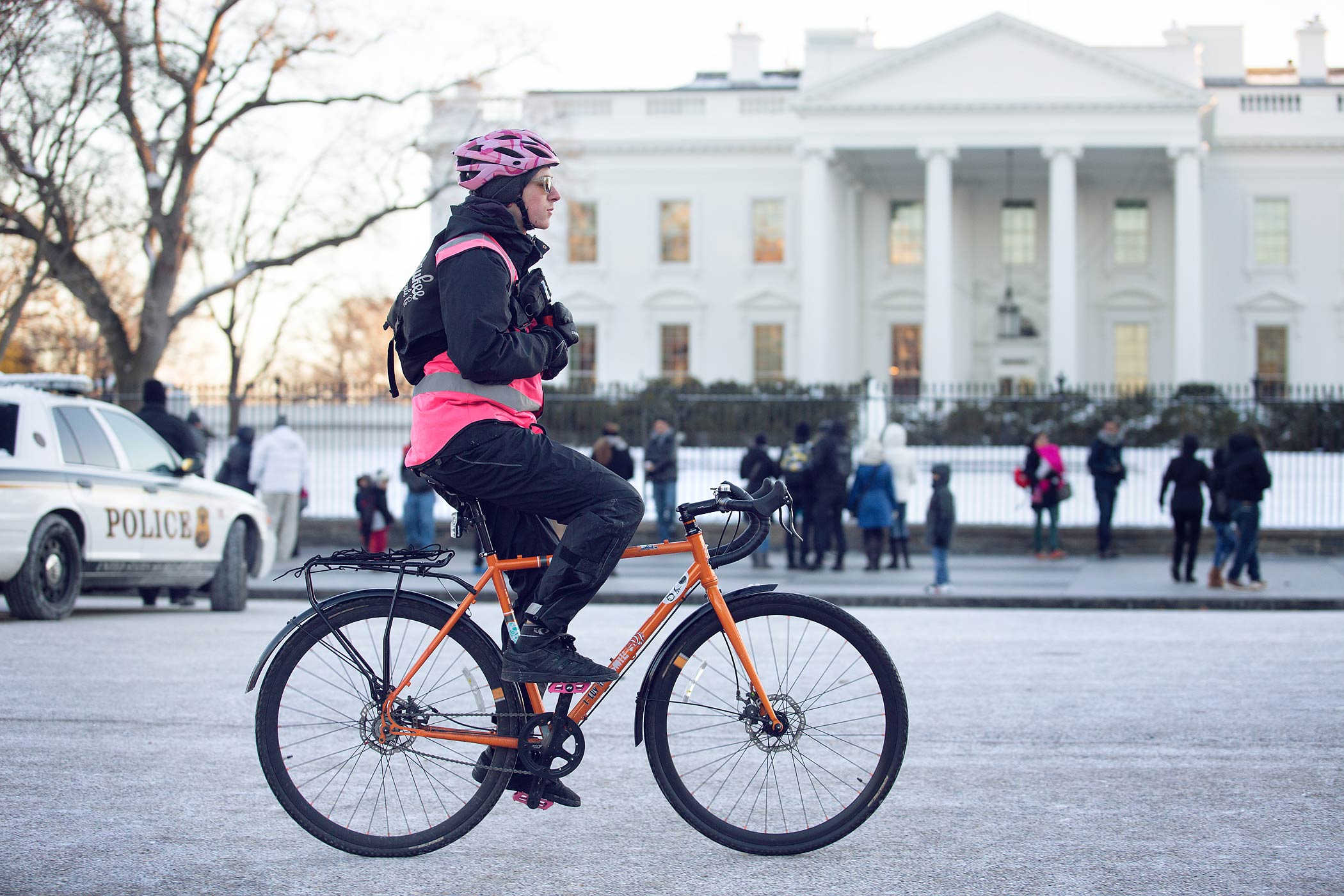
Shamar Theus, a 25-year-old working for Postmates, sits in his Ford Focus in San Francisco for about a minute before the first order comes in on his iPhone. Someone not far away wants 18 lb. of crushed ice, and Postmates is offering Theus $4.80 to pick it up and then deliver it. When he accepts the job, his phone guides him to the grocery store and then to the drop-off. “Everyone’s superbusy, overtaxed. So you bring stuff to people’s offices at 8 o’clock at night,” says Theus, who is wearing a smart watch and long black dreadlocks. “People have just reached a point where they’re so busy that they need to outsource these tasks.”
Same-day delivery, an iconic failure of the dotcom boom, is back–and not just for giants Amazon and Google. Startups like Postmates are using data science to bypass the need for warehouses and delivery fleets in their quest to serve consumers who are willing to pay a little extra to get things right away. They’re also eschewing payrolls by tapping into the growing workforce of independent contractors who are willing to trade health insurance for jobs they can do whenever they want. “It’s not only the consumer who says, ‘I want it on demand.’ The supply is on demand,” says Yale management professor Ravi Dhar. The supply also has GPS-enabled smartphones. In the previous tech boom, doomed companies were talking to couriers with two-way radios.
The vast majority of deliveries made by Postmates, which plans to be in 50 U.S. markets by the end of 2015, are hot meals. The company crunches data like food-preparation times to get better at stacking—letting couriers drop off one order while their next pickup is already assigned and being prepared. “I’m not saying we’ve perfected it,” says co-founder Bastian Lehmann. “But we know better than Pizzeria Delfina how long it takes them to make two cheese pizzas on a Friday night at 5 p.m.”
Call up Pizzeria Delfina—a popular Bay Area joint—and they’ll tell you they don’t deliver but “we have services that deliver for us.” Which is another benefit of the new delivery craze: giving local brick-and-mortar businesses a way to boost revenue. “We’re bringing them online and using their unique advantage of having those stores in the city,” says Apoorva Mehta, the 28-year-old founder of Instacart, a company that organizes personal shoppers who buy and deliver groceries to users in as little as an hour. In February, the co-CEO of high-end grocery chain Whole Foods said Instacart was poised to drive it “more convenience business” than ever.
Sidecar, a lesser-known version of Uber and Lyft, is leveraging people who are already on the road. The app, which allows people to pay for rides in other people’s cars, requires all users to enter in a destination before they get a ride. In February, the company announced it was going to start using that data to combine ride sharing with delivery. “We’re predicting the likelihood of a package and a person going to the same place,” says co-founder Sunil Paul. “Riders shouldn’t even know there are packages in the trunk.” Doubling up means more money for Sidecar and the driver, the firm hopes.
The workforce that is key to this new model may also be its Achilles’ heel. Uber has been hit by lawsuits claiming that it misclassifies drivers as independent contractors to avoid covering costs it would pay for employees. This generation of couriers has more flexibility but more risk, forking up their own cash for gas and tolls. Theus says that after expenses and before taxes, he makes $20 to $30 an hour. “It takes a little more effort. You don’t have HR to tell you how the math all works out,” he says. “But there’s enough demand.” He estimates that the ice is his 1,151st delivery.
With a ping and a touch of a button, he’s off to the next one.
Read next: The Easiest Way to Deal With Annoying Online Shopping Returns
More Must-Reads from TIME
- Why Trump’s Message Worked on Latino Men
- What Trump’s Win Could Mean for Housing
- The 100 Must-Read Books of 2024
- Sleep Doctors Share the 1 Tip That’s Changed Their Lives
- Column: Let’s Bring Back Romance
- What It’s Like to Have Long COVID As a Kid
- FX’s Say Nothing Is the Must-Watch Political Thriller of 2024
- Merle Bombardieri Is Helping People Make the Baby Decision
Contact us at letters@time.com